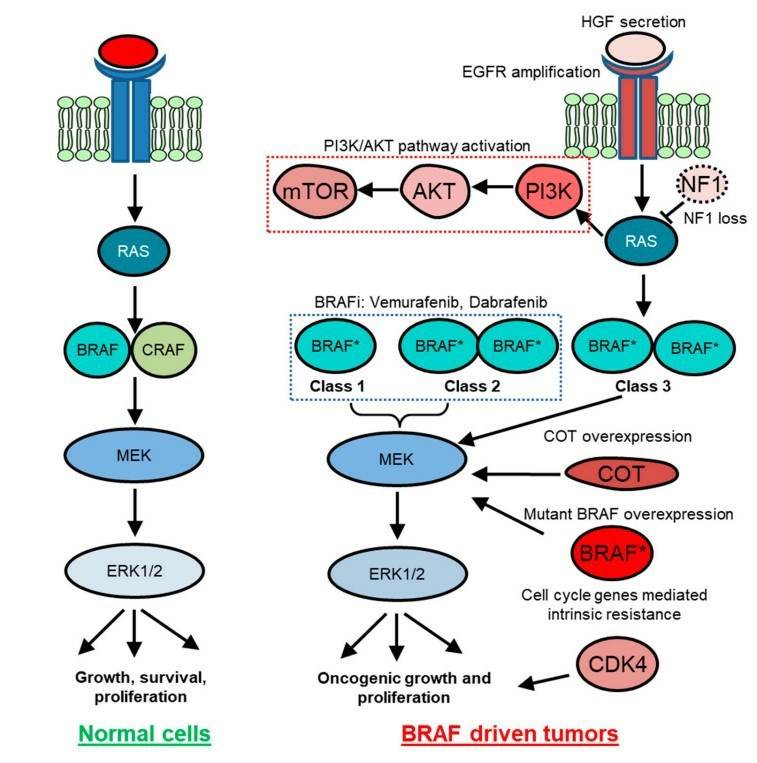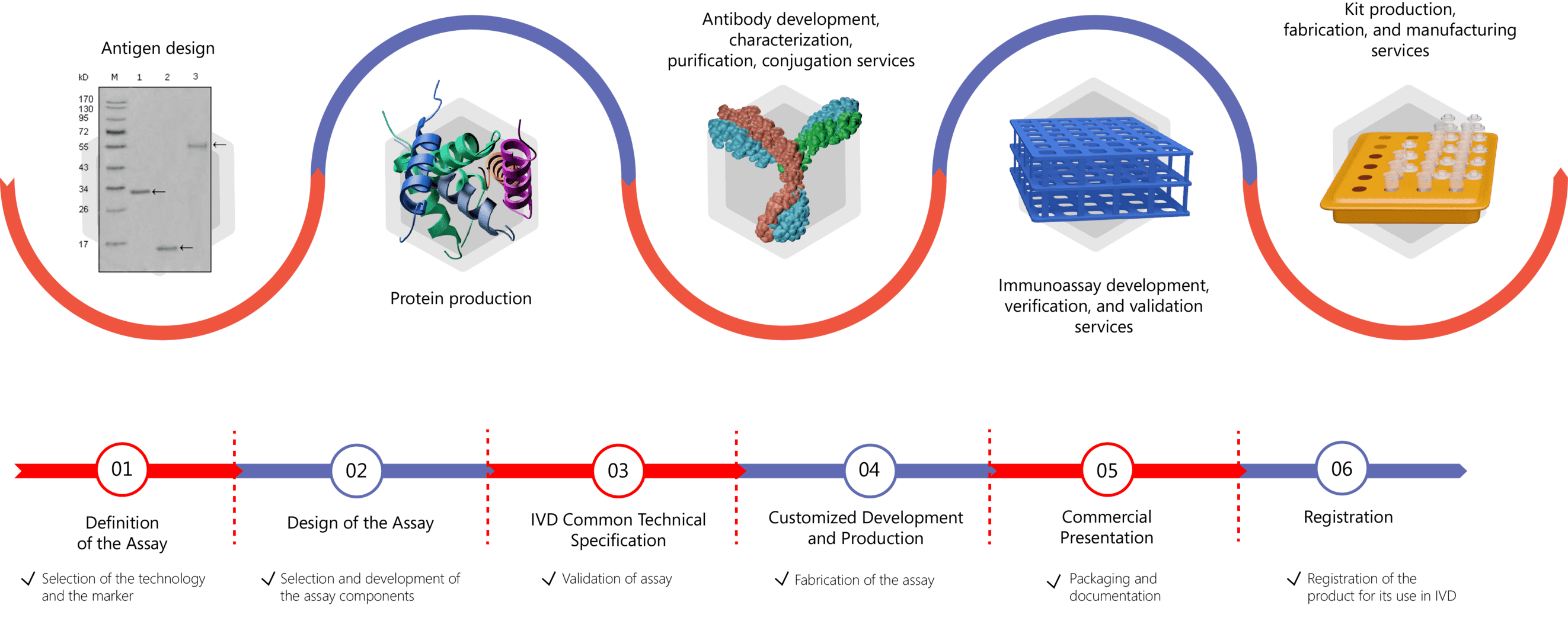Creative Biolabs has established a comprehensive IVD platform that allows us to offer comprehensive in vitro diagnostic (IVD) antibody & immunoassay development services to global clients. Our services can be customized to target various biomarkers with the potential for disease diagnosis or prognosis. Here, we briefly introduce the potential of e B-type Raf Kinase (BRAF) protein as a biomarker for cancer diagnosis.
Introduction to BRAF
The BRAF protein is a serine/threonine kinase that has important roles in cellular proliferation, differentiation, and programmed cell death. A BRAF mutation is commonly found in many human cancers including melanoma, colorectal cancer, lung cancer, and papillary thyroid carcinoma. V600E mutation in the BRAF protein, where a valine residue has been replaced with glutamic acid at position 600, is the most prominent mutation, occurring in 90% of these cancers. This mutation promotes tumorigenesis by aberrantly activating the mitogen-activated protein kinase signaling pathway. Therefore, BRAF V600E mutation may serve as a biomarker for diagnosis, prognosis, and treatment options for cancer patients.
Methods Used to Detect BRAF Mutations
An ideal assay for the detection of BRAF mutations should be highly accurate and sensitive. Different methods have been developed and used clinically, including Sanger sequencing, kits that employ real-time polymerase chain reaction, and immunohistochemistry (IHC) assay. Sanger sequencing has been considered to be the most reliable method for years but it was shown to exhibit lower sensitivity to the other two methods. Zhao et al. (2019) tested the above three methods in terms of sensitivity and specificity to detect BRAF mutations in papillary thyroid cancer (PTC) tissue and found that immunostaining with the anti-BRAF V600E antibody was highly sensitive. Besides, IHC is cheaper and widely available in most diagnostic laboratories. Besides, other researchers investigated the performance of a BRAF V600E mutant-specific antibody (clone VE1) in detecting BRAF mutations in colon carcinoma. The results showed that VE1 IHC can identify colon cancer BRAF V600E mutants with relatively high sensitivity and moderate specificity.
 Fig.1 BRAF-mediated signaling in normal and cancer cells.2
Fig.1 BRAF-mediated signaling in normal and cancer cells.2
IVD Antibody & Immunoassay Development Services Provided by Creative Biolabs
Diagnostic antibodies are immunodiagnostic kits which are becoming increasingly important in the IVD field. With the identification of more and more disease biomarkers with diagnostic, prognostic, and therapeutic monitor potential, new kits should be developed accordingly to aid in clinical diagnostics. Creative Biolabs has extensive experience in IVD antibody and immunodiagnostic test development and we offer comprehensive contract development services including:
- IVD Antibody Development
- Antibody Pair Development
- Antibody& Protein Conjugation
- IVD Immunoassay Development

Please feel free to contact us for more information and discuss your project needs.
References
- Zhao, J., (2019). “Comparison of diagnostic methods for the detection of a BRAF mutation in papillary thyroid cancer.” Oncology letters, 17(5), 4661-4666. Distributed under Open Access license CC BY 4.0, mentioned by summarizing some parts of the article.
- Zaman, Aubhishek, Wei Wu, and Trever G. Bivona. "Targeting oncogenic BRAF: past, present, and future." Cancers 11.8 (2019): 1197. Distributed under Open Access license CC BY 4.0, without modification.
For Research Use Only.